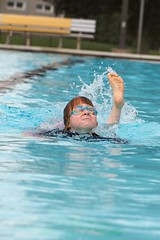I think I’m finally done freaking out about hearing Christmas carol muzak in early November and am easing into the holiday spirit. We’ve made some travel arrangements, found some fun gifts and are going on the prowl for great light displays tonight when it gets dark. Granted, with grown-up kids and the majority of grandkids little enough to prefer an empty water bottle to a Wii, our approach is pretty mellow. Despite some pressing project deadlines I’m relaxed enough to notice that lots of people are completely frazzled.
Although I understand it far too well, I find it sad that in our quest to find “the perfect present” many of us render ourselves completely absent. Spending too much, over-packing our schedules, eating fast food on the way to the mall…YIKES! How many ways can we use “creating the perfect holiday” to numb ourselves and detach? What would happen if we chose to prefer presence over presents?
presence |ˈprezəns|n. the state or fact of existing, occurring, or being present in a place or thing: his presence still makes me smile • a person or thing that exists or is present in a place but is not seen: the crowd became aware of a powerful presence.
I love dictionaries and the shades of meaning they can bring us. When I read this definition I thought about all of the unnecessary difficulties we humans (and especially parents) tend to create for ourselves. Let’s face it: with the day-to-day struggles so many people face there are already plenty of opportunities to practice our “refuse to lose” skills.
My dictionary went on to tell me about ‘related phrases.’ The one that popped out was “presence of mind: the ability to remain calm and take quick, sensible action.”
Is there “quick, sensible action” you can take to reduce your stress and be more present through the coming weeks? Stop. Connect. Breathe. Enjoy. Be more present. That’s a gift your kids can enjoy every day.
Related articles
- Healthy and Green Gifts For the Holidays (mint.com)
- Don’t Let Holiday Stress Hijack Your Holiday Spirit (forbes.com)
- 5 gift-giving types: which are you? – USATODAY.com (exitlanguages.wordpress.com)



